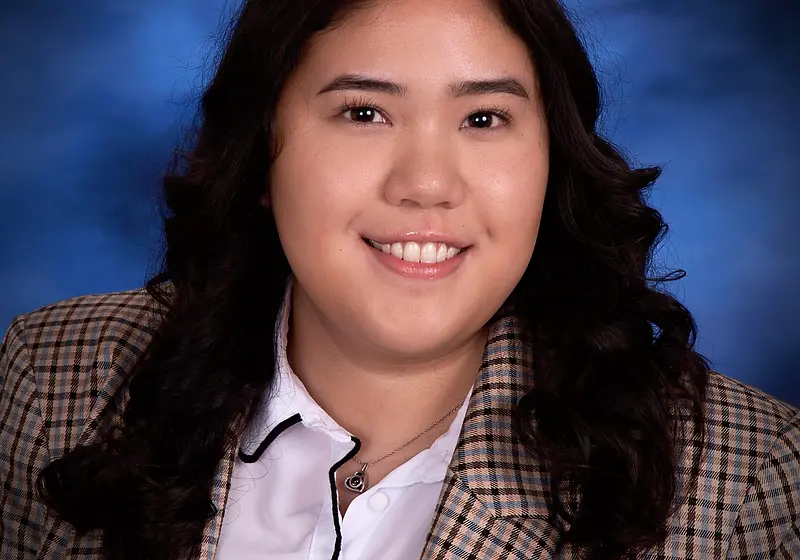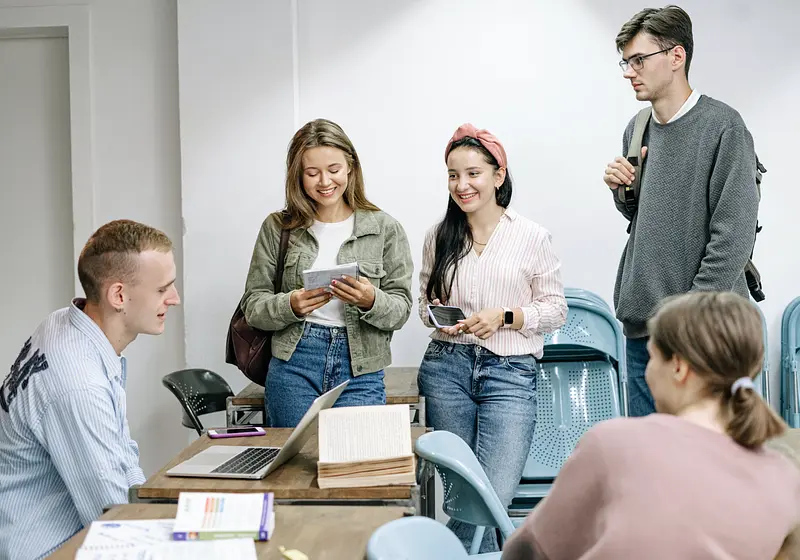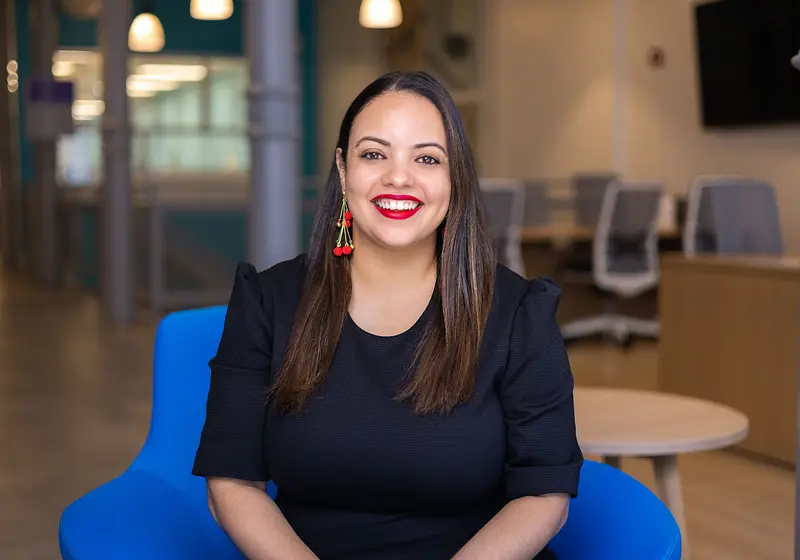It goes without saying that people of color and marginalized communities suffer from missing out on the most opportunities. From education to job prospects, POCs have always been disadvantaged compared to their white counterparts. But what about in the legal field specifically?
It's not different from any other profession, as in the lack of diversity is existent. Despite comprising 13.6% of the U.S. population, Black individuals comprise only 4.5% of the legal profession, per an American Bar Association survey. Likewise, Hispanics constitute 18.5% of the population, representing only 5.8% of lawyers, and Asian Americans, comprising 5.9% of the population, constitute just 5.5% of legal professionals.
Jeorjet Reyes, an associate at The Appellate Project (TAP), has collaborated with her colleagues to support the success of law students of color, particularly in the appellate arena. In this interview, The Teen Magazine recently engaged in a conversation with Jeorjet, exploring the hurdles people of color face in entering the appellate field and discussing strategies to empower more diverse law students to pursue careers as appellate court lawyers and judges.
Let us slide into your dms 🥰
Get notified of top trending articles like this one every week! (we won't spam you)The Beginning
Like most amazing projects, they usually start with good intentions. The Appellate Project was founded in 2019 by executive director Juvaria Khan based on her legal experiences as a law student at Columbia Law School and eventually as a POC practicing law. She sought to create a more diverse environment within the appellate court system due to the critical need for greater representation.The Supreme Court only hears 2% of the cases it receives, which results in 98% of cases being referred back to the appellate system and lower-level courts. These cases can range from reproductive to voter rights, emphasizing a greater need for different perspectives to ensure that decisions from these courts are well represented.

Take the Quiz: Which college major suits you?
Find out which college major aligns perfectly with your passions, strengths, and future dreams!
Taking Charge
When asked about her initial involvement with TAP, Jeorjet said, "I first came across TAP when I was applying for internship opportunities over a year ago. I was initially interested because I took a constitutional law class and was learning a little bit about the appellate courts and about the historical and significant cases of the Supreme Court. I was toying with the idea of whether I wanted to pursue law school or join the nonprofit sector, so when I came across TAP, it married both of my interests perfectly, so I was like, why don't I pursue an internship at The Appellate Project?
Not only my interests sparked why I joined TAP, but also reading about their mission and the work that they do resonated with me as a person of color. Even though I didn't pursue law school, I could still relate to some of the barriers law students of color face. I feel like students of color, no matter what career or area of interest that they pursue, face similar barriers, so it resonated with me."
Jeorjet's work at TAP as a program associate includes working with the program director, Joy Dingle, to facilitate and create the programming conducted throughout their Mentorship Program. Their Mentorship Program includes pairing up law students of color with two mentors in the appellate field, such as a judge, attorney, professor, or law clerk. They also offer programming, like clerkships-related events, skill-building workshops, networking, and community-building events.
The Impact
"I think what makes TAP so special is that we're really creating programs that are specifically designed for our students and alums and what their needs are. After the Mentorship Program is over, we ask our students, alumni, and volunteers to share their feedback and offer ideas for improvement for how we can make the next cycle of programming provide them with the specific support that they want and need.
This year, we're really exploring ways that we can connect these groups of people and reach a broader audience outside the legal field for those who want to learn about the appellate field or law in general through our programming. We want to empower those inside and outside of TAP's network to pursue the appellate field but also teach them about the importance of diversity in the space." - Jeorjet Reyes
Beyond working as a program associate, Jeorjet is also extremely involved in building TAP's social media and newsletter. She uses these platforms to highlight the wins of TAP's community and the organization, which relates to a diverse audience. Considering that the issue involving a lack of diversity in the appellate court affects everyone, it is extremely important to bring awareness to those issues.
The Appellate Project tackles this challenge by crafting a video that provides a concise overview of the functions of Appellate courts, along with an explanation of TAP's mission and its significance. This approach aims to connect with a wider audience, especially those who resonate with the importance of fostering greater diversity.
Despite its short run, TAP has greatly impacted many students of color and those in the legal field. We asked Jeorjet to share an experience that impacted an individual or community, to which she responded, "One of my responsibilities at TAP is to share the job opportunities that we receive from our community members with our students and alumni, and I remember sending out a posting from an appellate judge who was looking for an intern and not too long after one of our students emailed saying they interviewed and got the position with the appellate judge."
The Appellate Project (TAP) is one of the J.M.K. Innovation Prize recipients, an esteemed accolade The J.M. Kaplan Fund granted.
This prize, awarded every two years, aims to recognize and bolster transformative early-stage projects in areas like social justice, environmental conservation, and heritage preservation. The fund, administered by The J.M. Kaplan Fund, bestows a $175,000 grant over three years to each of the ten awardees. Alongside this financial support, recipients partake in a collaborative learning program tailored to assist these innovators in navigating the hurdles inherent in launching and expanding their initiatives. Specifically, the J.M.K. Innovation Prize targets organizations or entrepreneurs embarking on calculated-risk pilot projects or burgeoning initiatives, holding the promise to drive significant, large-scale transformation within American society.
Jeorjet disclosed more about the methods that TAP uses to provide support beyond the three years originally provided by the prize, stating, "One of TAP's core values is creativity, so we're always finding new ways to support our rapidly growing community. In strategic planning efforts this year and thinking beyond the organization, we really brainstormed ways we can continue to serve and support that growing community of students and alumni.
The goal for this program year is to develop and start to build the programming and resources that can accommodate the growing capacity of our participants and really encourage them to connect outside the program we create, either virtually or in person. Hopefully, the amazing support of the J.M.K. Fund also signifies to other funders how important our work is and how vital their support is to continue to do what we do best."
Looking toward the future
"I think most of the challenges law students of color face stem from lack of encouragement or lack of knowledge. For example, clerkships which are essentially opportunities for a student to intern and work with a judge. Clerkships are super valuable as they prepare students to become appellate advocates and allow them to practice important skills such as legal research and writing.
However, law students of color are often not well represented in clerkships or not encouraged to apply for clerkships so they really self-select out of the process. Here at TAP, we provide clerkship related resources whether that may be virtual or in person conversations with judges and their clerks to give an overview of the clerkship process and allow them to ask questions about the process. We also launched our first Clerkship Handbook this past year which is a comprehensive guide of what clerkships are and what the process entails. The lack of knowledge is another barrier law students face because a lot of law students of color are also first generation students meaning they may not have people in their network or their family to really provide that advice on pursuing a path in the appellate field. If these students don't have the proper connections to set them up for success in the legal field, they miss out on crucial or beneficial opportunities which is why we pair law students of color with mentors and create networking and community building programs so they can connect with one another and connect with other volunteers and mentors, and learn about the field while growing connections in a genuine kind of way." - Jeorjet Reyes
When asked about what we can expect from TAP in the future, Jeorjet responded with, "One of our long term goals is when employers interview TAP students and alumni, they really know they are receiving high quality and talented individuals who are more than qualified for this role. Our students are so talented and they bring their own set of lived experiences that makes them unique.
Our goal and hope is for employers to be open minded about casting a wide pool for recruitment because they don't know who they may be passing on for an opportunity. Another one of TAP's goals is that we wanna empower and facilitate that movement toward diversity and equal representation in the legal field, whether that may be seeing our students and alums becoming judges in our highest courts. We overall want our community to be those leaders creating the necessary change that leads to a court system that represents all of America."
To end things off, we asked Jeorjet to offer advice to students aspiring to engage in similar social-impact work within the legal field or nonprofit sector. She shared, "If you're really passionate about pursuing the legal field or nonprofit sector, don't let anything stand in the way of achieving those goals.
There may be people discouraging you from pursuing that kind of path, or times where you feel that self-doubt and imposter syndrome. But be sure to remind yourself of your passion and find those people who will support you along the way." As a POC pre-law kid, The Appellate Project is a reminder that students of color don't have to give up their dreams of pursuing a career in law and that there will always be a community to fall back on.
Check out their Twitter, Website, Instagram and LinkedIn to learn more about The Appellate Project and their current and future projects!














